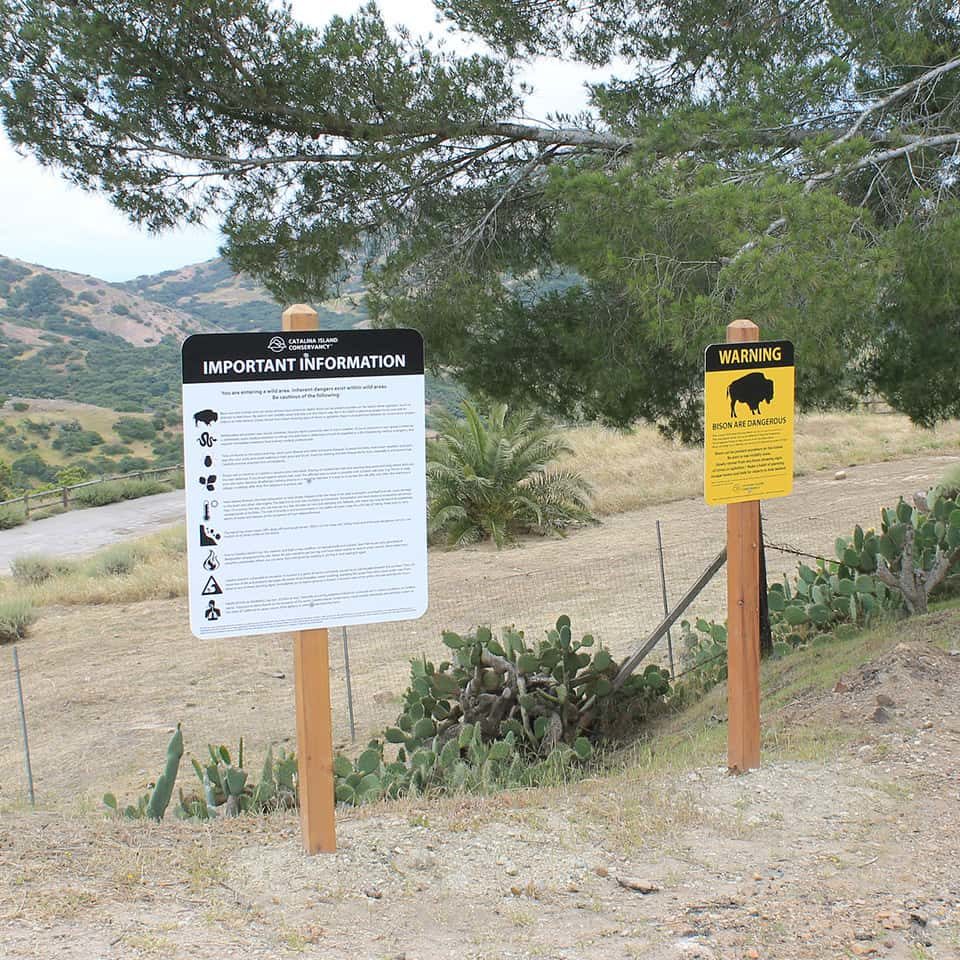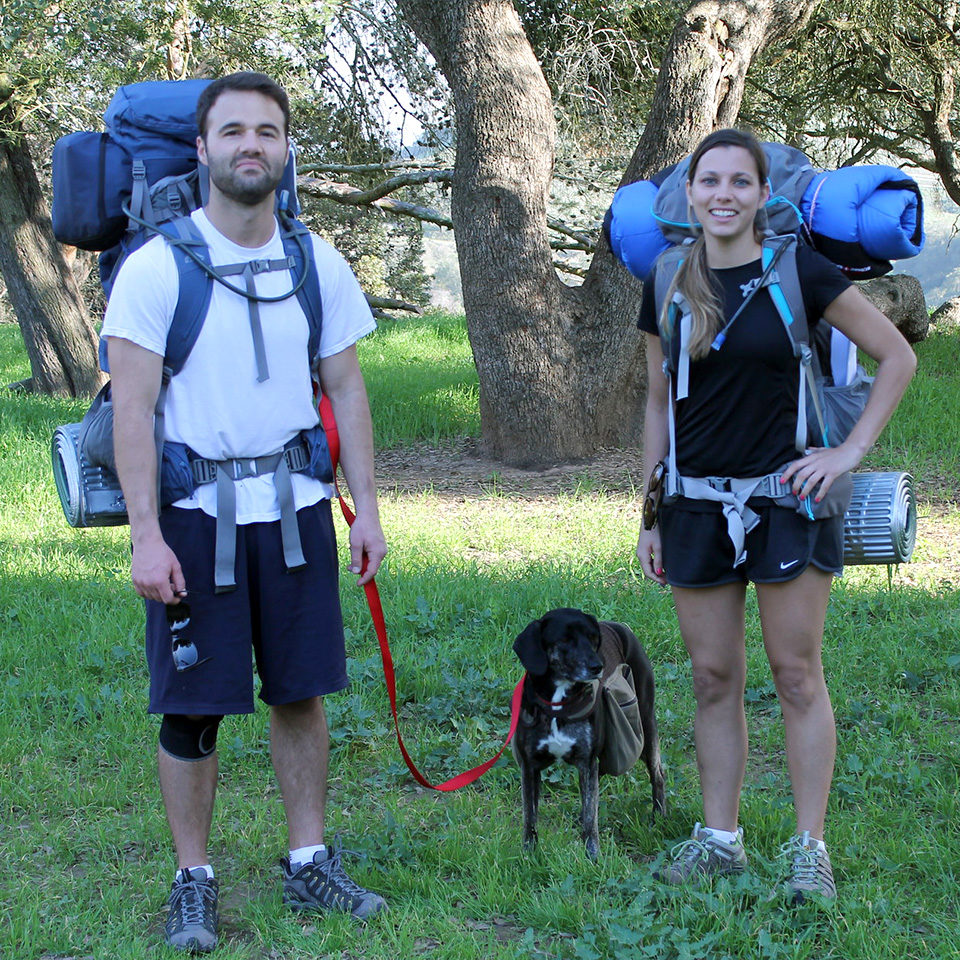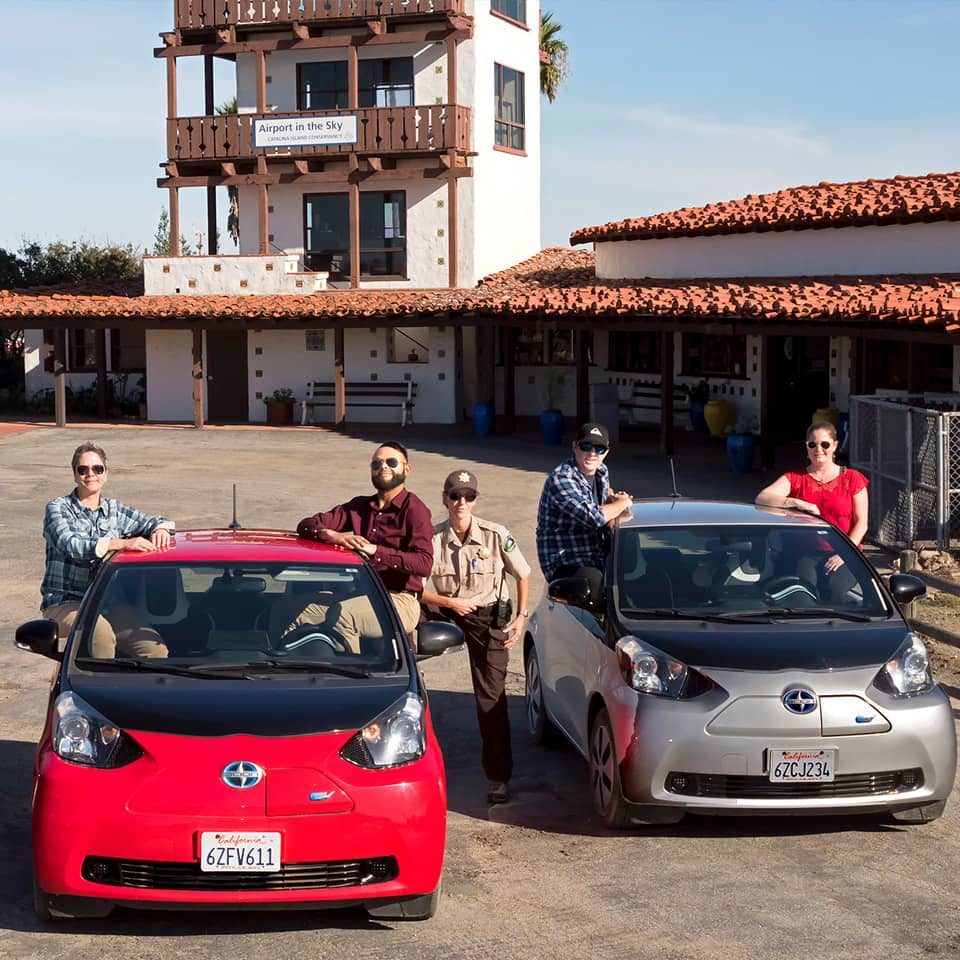RESOURCES
Policies & Information
We want you to enjoy Catalina to its fullest while also preserving this beautiful California treasure for future generations.
The Catalina Island Conservancy’s Board of Directors as a whole has responsibility for overall governance of the organization, and determining policy in the following areas: conservation, education and recreation programs, human resources, finance, development, community relations, operations, and strategic planning. In cases where the broader Island community may be impacted, community input is sought through a Conservation Council process established in 2004.
The following pages provide information about the policies regarding the use of vehicles, pets, and general cautions and policies regarding your visit into the interior of the island.

Photo by Amy Fernandez


Policy
Vehicles
Drivers must have a valid Catalina Island Conservancy Paradise Pass (granted via Membership), valid Drivers License (and be at least 18 years of age), valid DMV registration for the vehicle, insurance in the amount of $250,000/$500,000 for bodily injury and $100,000 for property damage, and sign all required rules and waivers requested by the Conservancy.
Road PermitsRules & Regulations
- No smoking or open fire is allowed anywhere on Conservancy land except at designated campgrounds or facilities pursuant to Los Angeles County Fire ordinances and Conservancy regulations. Los Angeles County Code Section17.12.370 prohibits fires on beaches in Los Angeles County.
- When ‘red flag’ days are declared, no smoking or fires of any kind are allowed anywhere in the interior. Carefully read posted signs and ask Conservancy staff or rangers if you have any questions. Fireworks, sparklers, torches, candle lanterns, candle balloons, flares or any other incendiary devise are strictly prohibited on Conservancy lands.
- Pack out all trash. Limited waste collection is available at some campgrounds. Littering is a violation of Conservancy regulations and state and county laws.
- Tree cutting or gathering of wood, including driftwood, for fires is prohibited.
- Do not disturb, excavate, damage or deface archaeological or historical sites (middens, habitation sites, rock art, historical structures, etc.). Leave all artifacts (bowls, shells, tools, mortars, jewelry, lithic materials, etc.) in the places where they are presently located. If you believe an artifact is at risk, contact a Conservancy ranger or staff person immediately with exact location information.
- Collecting, harvesting, hunting, trapping or otherwise exploiting plants, animals, rocks or minerals on Conservancy lands is prohibited unless specifically authorized by the Conservancy and in conformance with local, state and federal laws.
- Do not spread invasive plants to Catalina Island. Before coming to the Island, and when you leave, check your clothing and shoes carefully for seeds, dirt and mud. Remove all seeds or soil and dispose of them properly.
- Do not feed or disturb wildlife, especially Island foxes, deer, bison, squirrels or ravens. Feeding wildlife is a violation of California Fish and Game laws and Conservancy regulations. Maintain a safe distance from bison. Bison are large wild animals that can cause serious injury and even death. Do not approach or harass bison and other wildlife on Catalina and always maintain a safe distance.
- Hitchhiking is prohibited.
- Dogs and horses are allowed on Conservancy trails and roads. Dogs must be leashed at all times. Cats or other nonnative animals are not allowed. All dog waste must be collected and removed. Dogs must have current vaccinations, including: tri-annual rabies; annual distemper combination (DLHPCC) and kennel cough (Bordetella). Dogs are allowed in the following campgrounds only: Black Jack, Little Harbor (excluding Shark Harbor) and Parsons’ Landing. Dogs are not allowed at the Ben Weston primitive beach campsite. Los Angeles County Code Sections 17.12.290 and 17.12.300 prohibit dogs, cats and horses on any beach in Los Angeles County, including all beaches on Catalina Island.
- Adhere to all regulations that govern your travel in the backcountry. As a visitor you have the responsibility to ‘leave no trace’ of your presence on the natural environment.
- Stay on roads and trails that are open for public use. Do not enter non-Conservancy lands or lands of tenants of the Conservancy without permission.
